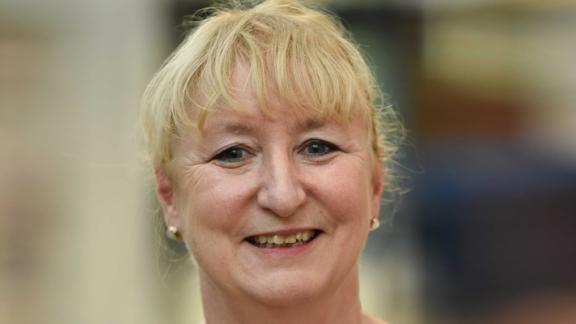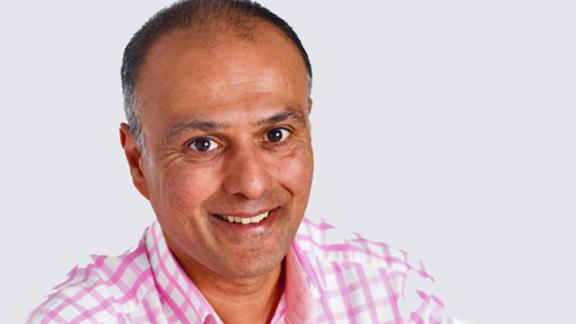NHS Reset: Working together to reset health and care

In this blog, part of a series of comment pieces from NHS Confederation leaders, members and partners, Imelda Redmond explains why we must listen to service user experience as well as that of providers.
Coronavirus has forced the NHS and social care to adapt at breakneck speed. In the heat of a crisis this is what is needed, to tackle matters head on and keep us safe.
But as we pass the peak, we need to take stock of what we have learned from the pandemic response and start planning for the future.
This is where patients, care users and their families can play a vital role. In implementing the NHS reset, health and care services can use people’s experiences to look beyond the facts and figures and really understand the impact of this unprecedented crisis.
Recognising sacrifices and achievements
Despite the obvious challenges engaging with the public during a pandemic, the Healthwatch network has continued to hear from thousands of people about their experiences of treatment over the last two months. Their stories cover not just people with COVID-19, but also those with huge a range of other conditions which have seen their treatment and support affected too.
Even where there have been difficulties, many people have spoken very highly of the dedication and empathy of the staff involved in their treatment. Where praise has been forthcoming it is because staff and services are seen to be treating patients with respect and are keeping them informed with what is going on despite the current pressures.
For this, and the sacrifices health and care staff have made in recent weeks, the British public will be eternally grateful.
Rebuilding services locally
The NHS Confederation is right to argue that the reset strategies need to be driven locally. Enabling local flexibility is the best way to re-establish traditional services but also to make the most of the new ways of doing things, ensuring everyone benefits from the ‘new normal’.
While many of these changes are likely to create opportunities and improvements for patients and care users, they also mean more unanswered questions. While digital appointments may have been a boon for people who are comfortable using technology, does its wholesale adoption risk excluding those who are not? This is an area where listening to patients will help to provide the answers.
While many of the changes brought in have been designed to prevent the pandemic overwhelming our hospitals, they do also have the potential to affect others negatively. For example, what will be the impact of the swathes of cancelled non-urgent operations? The numbers are important, but behind each of these numbers is a patient and a family, and their experiences should help shape the future of health and care.
Health and care - integration
We welcome the NHS Confederation opening the discussion which will give us all – including services and the people who use them - the opportunity to talk about our ambitions for health and care. In particular, we support efforts to put social care on a par with the NHS. We know from what people tell us that they find it difficult to know what they should expect from social care and how they should access it. Managing financial arrangements for social care can be an extra burden for people having to navigate a complex system.
The relationship between the NHS, other public services and the communities they serve will be crucial. We have seen the willingness to volunteer to help the NHS in a time of crisis, we should now look at how we can harness that support to enable health and care services to deliver what is needed.
We must not lose our understanding that there should be no hierarchy with acute trusts perceived as being at the top and social care at the bottom. We now understand the interdependency of community services, social care, primary care, pharmacy, hospitals, diagnostic services, public health and environmental services with the supply chain too. Flaws have been laid bare during this pandemic which must be addressed as part of the reset.
Preparing for a new normal
To help understand the ever-evolving response to coronavirus and whether the trade-offs being made are acceptable or not, health and care leaders need all the information they can get their hands on. Official statistics can only go so far, especially when we’re not yet sure what we’re measuring.
When we emerge from the lockdown, it will be into a different world. Many health services may choose to continue using some of the solutions they have needed to adopt – such as GPs embracing digital consultations. These may work for many people, but not for everybody. We will need to listen to all experiences so that we can design future services that meet all needs. People can tell us far more than simply whether digital consultations work for them or not. Their insight can help us improve access, increase take-up and patient satisfaction.
Encouraging people to report where they see services unable to help those in need or where they see problems are emerging could make all the difference. They will also be able to tell us what has worked well, and the best way to maintain public trust as the changes become standard.
NHS Reset provides an opportunity for providers and the people who use the services to come together to have a shared understanding of what future health and care can look like.
In these unprecedented times for all our public services, people’s perspectives must be seen as a priceless contribution to the public health response, providing services and policy -makers with information we might not otherwise be able to access. At Healthwatch, our goal is to make sure these perspectives translate into tangible change locally and nationally. There’s never been a more important time for the NHS to encourage people to speak up and to use their views and experiences to shape the changes ahead.
Imelda Redmond CBE is national director of Healthwatch England. Follow her on Twitter @redmond_imelda



